
| Vehicle | Precise engine size | Difference from world average | Engine size to consumption ratio | Horsepower from 1 L | Engine size to 100 kg of weight |
|---|---|---|---|---|---|
| 500 V6 |
3.46 L (3456 cc) |
47.3% bigger | - | 121 hp from 1 L | - |
| 500h V6 |
3.46 L (3456 cc) |
47.3% bigger | - | 85 hp from 1 L | - |
| Vehicle | 500 V6 |
|---|---|
| Precise engine size | 3.46 L (3456 cc) |
| Difference from world average | 47.3 bigger |
| Engine size to consumption ratio | - |
| Horsepower from 1 L | 121 hp from 1 L |
| Engine size to 100 kg of weight | - |
| Vehicle | 500h V6 |
| Precise engine size | 3.46 L (3456 cc) |
| Difference from world average | 47.3 bigger |
| Engine size to consumption ratio | - |
| Horsepower from 1 L | 85 hp from 1 L |
| Engine size to 100 kg of weight | - |
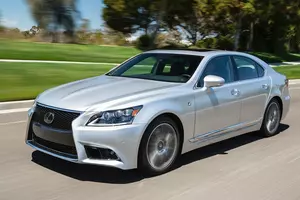
| Vehicle | Precise engine size | Difference from world average | Engine size to consumption ratio | Horsepower from 1 L | Engine size to 100 kg of weight |
|---|---|---|---|---|---|
| 460 |
4.61 L (4608 cc) |
96.4% bigger | 209 cc to 1 mpg | 84 hp from 1 L | - |
| 600h |
4.97 L (4969 cc) |
111.8% bigger | 184 cc to 1 mpg | 79 hp from 1 L | - |
| Vehicle | 460 |
|---|---|
| Precise engine size | 4.61 L (4608 cc) |
| Difference from world average | 96.4 bigger |
| Engine size to consumption ratio | 209 cc to 1 mpg |
| Horsepower from 1 L | 84 hp from 1 L |
| Engine size to 100 kg of weight | - |
| Vehicle | 600h |
| Precise engine size | 4.97 L (4969 cc) |
| Difference from world average | 111.8 bigger |
| Engine size to consumption ratio | 184 cc to 1 mpg |
| Horsepower from 1 L | 79 hp from 1 L |
| Engine size to 100 kg of weight | - |

| Vehicle | Precise engine size | Difference from world average | Engine size to consumption ratio | Horsepower from 1 L | Engine size to 100 kg of weight |
|---|---|---|---|---|---|
| 460L V8 |
4.61 L (4608 cc) |
96.4% bigger | 243 cc to 1 mpg | 84 hp from 1 L | 243 cc to 100 kg |
| 600h L V8 |
4.97 L (4969 cc) |
111.8% bigger | 248 cc to 1 mpg | 79 hp from 1 L | 216 cc to 100 kg |
| Vehicle | 460L V8 |
|---|---|
| Precise engine size | 4.61 L (4608 cc) |
| Difference from world average | 96.4 bigger |
| Engine size to consumption ratio | 243 cc to 1 mpg |
| Horsepower from 1 L | 84 hp from 1 L |
| Engine size to 100 kg of weight | 243 cc to 100 kg |
| Vehicle | 600h L V8 |
| Precise engine size | 4.97 L (4969 cc) |
| Difference from world average | 111.8 bigger |
| Engine size to consumption ratio | 248 cc to 1 mpg |
| Horsepower from 1 L | 79 hp from 1 L |
| Engine size to 100 kg of weight | 216 cc to 100 kg |
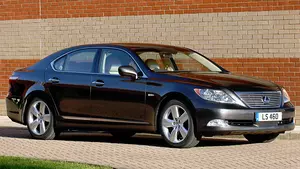
| Vehicle | Precise engine size | Difference from world average | Engine size to consumption ratio | Horsepower from 1 L | Engine size to 100 kg of weight |
|---|---|---|---|---|---|
| 600h L V8 |
4.97 L (4969 cc) |
111.8% bigger | 207 cc to 1 mpg | 79 hp from 1 L | 207 cc to 100 kg |
| 460L V8 |
4.61 L (4608 cc) |
96.4% bigger | 219 cc to 1 mpg | 82 hp from 1 L | 209 cc to 100 kg |
| Vehicle | 600h L V8 |
|---|---|
| Precise engine size | 4.97 L (4969 cc) |
| Difference from world average | 111.8 bigger |
| Engine size to consumption ratio | 207 cc to 1 mpg |
| Horsepower from 1 L | 79 hp from 1 L |
| Engine size to 100 kg of weight | 207 cc to 100 kg |
| Vehicle | 460L V8 |
| Precise engine size | 4.61 L (4608 cc) |
| Difference from world average | 96.4 bigger |
| Engine size to consumption ratio | 219 cc to 1 mpg |
| Horsepower from 1 L | 82 hp from 1 L |
| Engine size to 100 kg of weight | 209 cc to 100 kg |
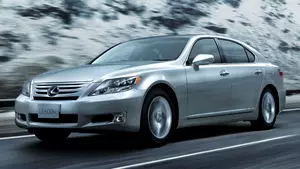
| Vehicle | Precise engine size | Difference from world average | Engine size to consumption ratio | Horsepower from 1 L | Engine size to 100 kg of weight |
|---|---|---|---|---|---|
| 600h V8 |
4.97 L (4969 cc) |
111.8% bigger | 207 cc to 1 mpg | 79 hp from 1 L | 207 cc to 100 kg |
| 460 V8 |
4.61 L (4608 cc) |
96.4% bigger | 200 cc to 1 mpg | 80 hp from 1 L | 219 cc to 100 kg |
| Vehicle | 600h V8 |
|---|---|
| Precise engine size | 4.97 L (4969 cc) |
| Difference from world average | 111.8 bigger |
| Engine size to consumption ratio | 207 cc to 1 mpg |
| Horsepower from 1 L | 79 hp from 1 L |
| Engine size to 100 kg of weight | 207 cc to 100 kg |
| Vehicle | 460 V8 |
| Precise engine size | 4.61 L (4608 cc) |
| Difference from world average | 96.4 bigger |
| Engine size to consumption ratio | 200 cc to 1 mpg |
| Horsepower from 1 L | 80 hp from 1 L |
| Engine size to 100 kg of weight | 219 cc to 100 kg |
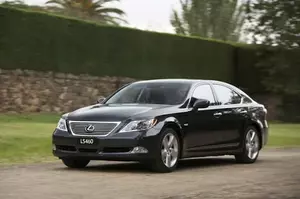
| Vehicle | Precise engine size | Difference from world average | Engine size to consumption ratio | Horsepower from 1 L | Engine size to 100 kg of weight |
|---|---|---|---|---|---|
| 460 V8 |
4.61 L (4608 cc) |
96.4% bigger | 159 cc to 1 mpg | 82 hp from 1 L | 230 cc to 100 kg |
| 600h V8 |
4.97 L (4969 cc) |
111.8% bigger | 199 cc to 1 mpg | 79 hp from 1 L | 216 cc to 100 kg |
| Vehicle | 460 V8 |
|---|---|
| Precise engine size | 4.61 L (4608 cc) |
| Difference from world average | 96.4 bigger |
| Engine size to consumption ratio | 159 cc to 1 mpg |
| Horsepower from 1 L | 82 hp from 1 L |
| Engine size to 100 kg of weight | 230 cc to 100 kg |
| Vehicle | 600h V8 |
| Precise engine size | 4.97 L (4969 cc) |
| Difference from world average | 111.8 bigger |
| Engine size to consumption ratio | 199 cc to 1 mpg |
| Horsepower from 1 L | 79 hp from 1 L |
| Engine size to 100 kg of weight | 216 cc to 100 kg |

| Vehicle | Precise engine size | Difference from world average | Engine size to consumption ratio | Horsepower from 1 L | Engine size to 100 kg of weight |
|---|---|---|---|---|---|
| 600h L V8 |
4.97 L (4969 cc) |
111.8% bigger | 191 cc to 1 mpg | 79 hp from 1 L | 216 cc to 100 kg |
| 460L |
4.61 L (4608 cc) |
96.4% bigger | 219 cc to 1 mpg | 82 hp from 1 L | 230 cc to 100 kg |
| Vehicle | 600h L V8 |
|---|---|
| Precise engine size | 4.97 L (4969 cc) |
| Difference from world average | 111.8 bigger |
| Engine size to consumption ratio | 191 cc to 1 mpg |
| Horsepower from 1 L | 79 hp from 1 L |
| Engine size to 100 kg of weight | 216 cc to 100 kg |
| Vehicle | 460L |
| Precise engine size | 4.61 L (4608 cc) |
| Difference from world average | 96.4 bigger |
| Engine size to consumption ratio | 219 cc to 1 mpg |
| Horsepower from 1 L | 82 hp from 1 L |
| Engine size to 100 kg of weight | 230 cc to 100 kg |
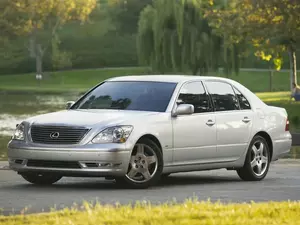
| Vehicle | Precise engine size | Difference from world average | Engine size to consumption ratio | Horsepower from 1 L | Engine size to 100 kg of weight |
|---|---|---|---|---|---|
| 430 V8 |
4.29 L (4293 cc) |
83% bigger | 204 cc to 1 mpg | 66 hp from 1 L | 239 cc to 100 kg |
| Vehicle | 430 V8 |
|---|---|
| Precise engine size | 4.29 L (4293 cc) |
| Difference from world average | 83 bigger |
| Engine size to consumption ratio | 204 cc to 1 mpg |
| Horsepower from 1 L | 66 hp from 1 L |
| Engine size to 100 kg of weight | 239 cc to 100 kg |

| Vehicle | Precise engine size | Difference from world average | Engine size to consumption ratio | Horsepower from 1 L | Engine size to 100 kg of weight |
|---|---|---|---|---|---|
| 430 V8 |
4.29 L (4293 cc) |
83% bigger | 204 cc to 1 mpg | 68 hp from 1 L | 239 cc to 100 kg |
| Vehicle | 430 V8 |
|---|---|
| Precise engine size | 4.29 L (4293 cc) |
| Difference from world average | 83 bigger |
| Engine size to consumption ratio | 204 cc to 1 mpg |
| Horsepower from 1 L | 68 hp from 1 L |
| Engine size to 100 kg of weight | 239 cc to 100 kg |
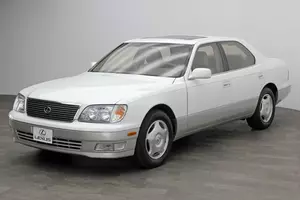
| Vehicle | Precise engine size | Difference from world average | Engine size to consumption ratio | Horsepower from 1 L | Engine size to 100 kg of weight |
|---|---|---|---|---|---|
| 400 V8 |
3.97 L (3969 cc) |
69.2% bigger | 209 cc to 1 mpg | 72 hp from 1 L | 221 cc to 100 kg |
| Vehicle | 400 V8 |
|---|---|
| Precise engine size | 3.97 L (3969 cc) |
| Difference from world average | 69.2 bigger |
| Engine size to consumption ratio | 209 cc to 1 mpg |
| Horsepower from 1 L | 72 hp from 1 L |
| Engine size to 100 kg of weight | 221 cc to 100 kg |
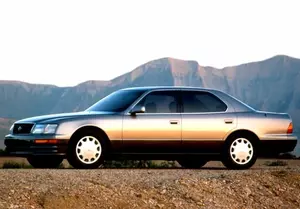
| Vehicle | Precise engine size | Difference from world average | Engine size to consumption ratio | Horsepower from 1 L | Engine size to 100 kg of weight |
|---|---|---|---|---|---|
| 400 V8 |
3.97 L (3969 cc) |
69.2% bigger | 180 cc to 1 mpg | 66 hp from 1 L | 233 cc to 100 kg |
| Vehicle | 400 V8 |
|---|---|
| Precise engine size | 3.97 L (3969 cc) |
| Difference from world average | 69.2 bigger |
| Engine size to consumption ratio | 180 cc to 1 mpg |
| Horsepower from 1 L | 66 hp from 1 L |
| Engine size to 100 kg of weight | 233 cc to 100 kg |
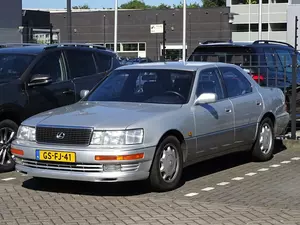
| Vehicle | Precise engine size | Difference from world average | Engine size to consumption ratio | Horsepower from 1 L | Engine size to 100 kg of weight |
|---|---|---|---|---|---|
| 400 V8 |
3.97 L (3969 cc) |
69.2% bigger | 198 cc to 1 mpg | 64 hp from 1 L | 221 cc to 100 kg |
| Vehicle | 400 V8 |
|---|---|
| Precise engine size | 3.97 L (3969 cc) |
| Difference from world average | 69.2 bigger |
| Engine size to consumption ratio | 198 cc to 1 mpg |
| Horsepower from 1 L | 64 hp from 1 L |
| Engine size to 100 kg of weight | 221 cc to 100 kg |

| Vehicle | Precise engine size | Difference from world average | Engine size to consumption ratio | Horsepower from 1 L | Engine size to 100 kg of weight |
|---|---|---|---|---|---|
| 400 V8 |
3.97 L (3969 cc) |
69.2% bigger | 198 cc to 1 mpg | 64 hp from 1 L | 233 cc to 100 kg |
| Vehicle | 400 V8 |
|---|---|
| Precise engine size | 3.97 L (3969 cc) |
| Difference from world average | 69.2 bigger |
| Engine size to consumption ratio | 198 cc to 1 mpg |
| Horsepower from 1 L | 64 hp from 1 L |
| Engine size to 100 kg of weight | 233 cc to 100 kg |